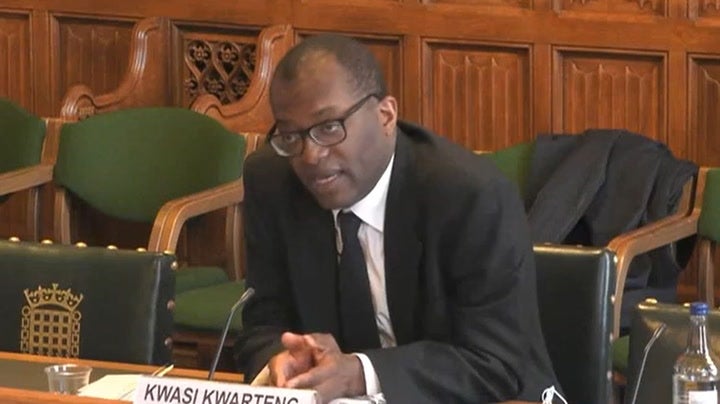Government eyes windfall tax on energy companies that profit from gas price hikes
Windfall tax on generators and traders among list of options being considered, Kwasi Kwarteng indicates

Your support helps us to tell the story
From reproductive rights to climate change to Big Tech, The Independent is on the ground when the story is developing. Whether it's investigating the financials of Elon Musk's pro-Trump PAC or producing our latest documentary, 'The A Word', which shines a light on the American women fighting for reproductive rights, we know how important it is to parse out the facts from the messaging.
At such a critical moment in US history, we need reporters on the ground. Your donation allows us to keep sending journalists to speak to both sides of the story.
The Independent is trusted by Americans across the entire political spectrum. And unlike many other quality news outlets, we choose not to lock Americans out of our reporting and analysis with paywalls. We believe quality journalism should be available to everyone, paid for by those who can afford it.
Your support makes all the difference.The government is eyeing a windfall tax on energy generating and trading companies that profit from increases in gas prices, the business and energy secretary has said.
Speaking on Wednesday at a parliamentary committee Kwasi Kwarteng indicated that such a levy might be a way of correcting the market.
The minister warned MPs that preparations were being made for gas prices to remain high for some time – despite Boris Johnson earlier this week describing the problem as "temporary".
"I think 'temporary' means that it's a position where the price has spiked considerably... I think it has quadrupled in the last six months, seven months," he said.
"You would expect normally that the price would revert to the mean, it's not something that we think is going to be sustainable. But, of course, we have to prepare for longer-term high prices."
During a round of questioning Labour MP Darren Jones, chairman of the committee, said Spain had imposed a levy on "the generators and traders who are making very significant profits" to fund protections for consumers.
Asked whether such a policy was a possibility in the UK, Mr Kwarteng said: "We are looking at all options.
"What they are doing in Spain is recognising that it's an entire system - the energy system is an entire system.
"I am in discussion with Ofgem and other officials, looking at all options."
Pushed on the issue of a windfall tax, the business and energy secretary added: "I'm not a fan of windfall taxes, let me just get that straight – but of course it's an entire system and we have to think of how we can get the whole system to help itself."
Mr Kwarteng was appearing before the committee after meeting with regulators and energy firms in light of sharp increase in gas prices in the UK.
The price rise is driving some smaller suppliers out of business because they are unable to pass their costs onto consumers due to the government's price cap. Mr Kwarteng said the cap was here to stay and that firms, some of whom have been lobbying to end the cap, knew that it existed before they decided to enter the market.
The business secretary warned earlier this week that it could be a "difficult winter" for many people hit by a rise in bills, especially those who were also hit by the government's cuts to Universal Credit.
Windfall taxes were last imposed on the excess profits of a privatised utilities by Tony Blair's government in the aftermath of the 1997 general election.
That tax produced a one-off income of around £5 billion which was used to fund a workfare programme and capital for new schools.
UK gas prices have surged far higher than those in continental Europe; the government says the crisis is global but critics say leaving the EU single market for energy has had an impact.
Join our commenting forum
Join thought-provoking conversations, follow other Independent readers and see their replies
0Comments